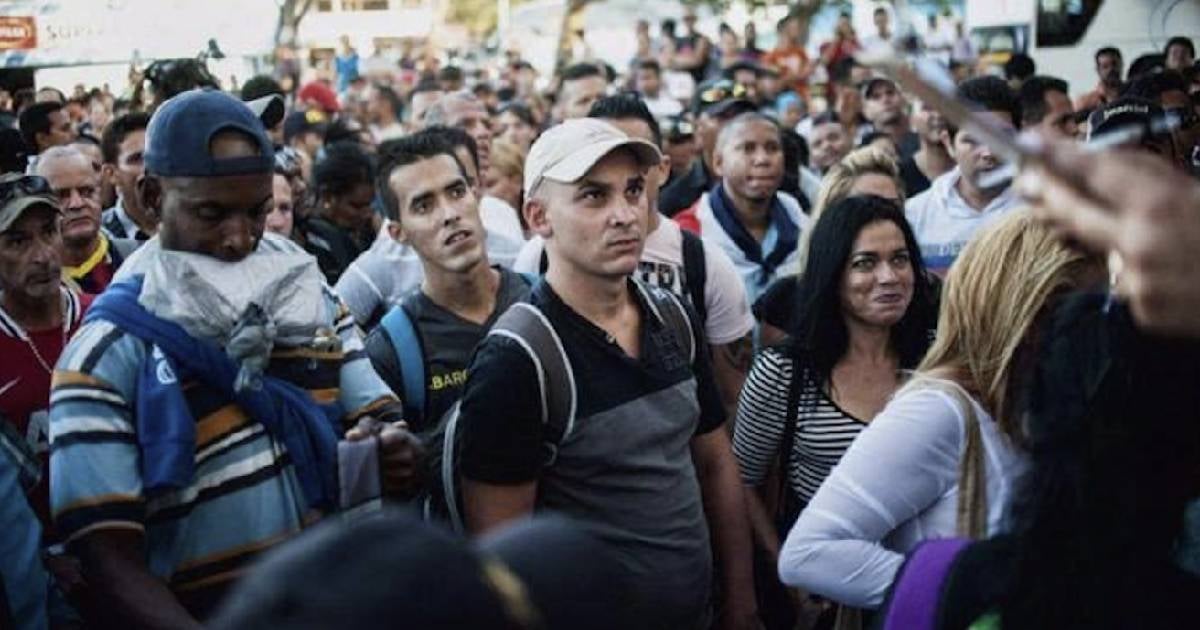Uruguay reported a total of 208 victims of human trafficking last year, with 169 of them being minors and Cuban migrants, according to a report published by the U.S. government and confirmed by local sources. Among the victims were individuals from Uruguay, Argentina, Colombia, Nicaragua, and Cuba, whose presence has increased in the South American nation amidst the ongoing migration crisis in the Caribbean island, as cited by the national newspaper El País.
On the occasion of the World Day Against Trafficking in Persons, the organization Agenda de Derechos in collaboration with the Mexican Embassy organized a discussion to address the situation in Uruguay. Mónica Bottero, the president of the National Institute of Women (Inmujeres), emphasized that Uruguay has become both a source and transit country for human trafficking. "In the nineties, we were more of a destination country; today, we are also a source and transit," she stated.
The report reveals a worrying increase in the number of convicted traffickers, with 35 convictions in 2023, almost triple compared to the 13 in 2022. Despite these advances, significant challenges remain in the fight against human trafficking, officials noted.
The report highlighted that among the trafficking victims were several Cubans, lured by false promises of employment and better opportunities. The harsh conditions in Cuba, including the lack of freedoms and economic opportunities, continue to drive many to seek a desperate escape to other countries, including Uruguay, where 20 percent of the migrant population comes from the island.
As early as 2020, cases of trafficking involving Cuban women were already being observed. That year, Uruguayan police dismantled a network that sexually exploited Cuban women in the South American country. Mariela Solari, Director of the Victim and Witness Unit of the Prosecutor's Office, highlighted the "mutations" in the modalities of these crimes, noting that criminal organizations quickly adapt, making effective prosecution difficult. "It seems like we are always running behind," Solari stated.
Mariana Kiefer, Head of the United Nations Office on Drugs and Crime (UNODC) in Uruguay, pointed out the use of technology by criminals to recruit victims. "We think they are safe because they are in their room, but they could be talking to people from anywhere in the world," she explained.
A recent report from the U.S. government indicates that Uruguay "does not fully meet the minimum standards for the elimination of human trafficking, but is making significant efforts to achieve it." The country is on the Tier 2 Watch List. Among the advances are increased investigations of suspected traffickers and an increase in funding for victim services.
Human Trafficking in Uruguay: Key Questions and Answers
Given the growing concerns about human trafficking in Uruguay, here are some frequently asked questions and answers to provide more insight into the issue.
What is the current status of human trafficking in Uruguay?
Uruguay is currently on the Tier 2 Watch List, indicating that while the country does not fully comply with the minimum standards for eliminating human trafficking, it is making significant efforts to do so.
How many human trafficking victims were identified in Uruguay in 2023?
In 2023, Uruguay identified a total of 208 human trafficking victims, with 169 of them being minors and Cuban migrants.
What measures is Uruguay taking to combat human trafficking?
Uruguay has increased investigations into suspected traffickers, boosted funding for victim services, and organized discussions in collaboration with international bodies to address the issue.
Why are Cuban migrants particularly vulnerable to human trafficking?
Cuban migrants are vulnerable to human trafficking due to harsh conditions in Cuba, including a lack of freedoms and economic opportunities, which compel many to seek better prospects abroad.
